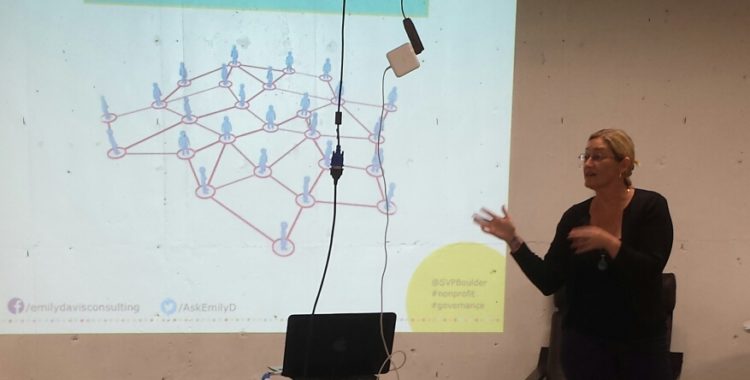


Monday, August 11th, 2014
By Emily Davis, President of Emily Davis Consulting
As a follow up to our part 1 blog post on recruiting quality board members, below are ideas on how you can RETAIN your organization’s great board members (hint: invest in them and they will invest back in your organization!).
Connect them to organizational successes
Always highlight how the board’s efforts have made organizational successes possible. This is a common communication strategy for fundraising, and applies equally as well to board retention. A personal thank you letter, e-card, or public recognition through a meeting or a newsletter is always a great way to get this across. Be an example for others to follow by communicating your organizational successes and the board’s role through your social media (Facebook, LinkedIn, Twitter, Instagram, etc.) outlets. Future board members are sure to see that you are an organization who supports these unique volunteers and will want to join your organization.
Provide learning opportunities
Any organization can expect board members to have a breadth of backgrounds – from experienced, to brand new, and including variety of different types of past volunteer leadership positions. Maybe you have a large number of board members who know a lot about the corporate world and little about the nonprofit sector. Or perhaps your board is not confident or engaged in fundraising for your organization.
Planning and hosting a board in-service training can be a useful tool for your board volunteers. Show them that learning is a priority in your organization and that it is important at every level. One strategy when asking board members to join the organization’s leadership is to ask them to commit to 1 – 2 independent professional development trainings per year.
Ask staff members to come and provide reports or presentations to the board on what they do during their days. It gives the staff an opportunity to talk about, and practice their communication skills, while keeping the board connected to the work your staff is responsible for.
Great orientation
Being new in any group can be daunting, but having a well-planned orientation process will help integrate the new member(s) of your board leadership team. Consider partnering up your new board member with a mentor or buddy who has been on the board for at least one year. Invite potential board members to sit in on board meetings PRIOR to his or her joining the board so s/he can see what to expect.
Be clear about roles and responsibilities
From the beginning it is important for board members at your organization to know that their role is devoted to governance and fiscal responsibility for the organization. They should ALWAYS have your mission at heart, and play the strategic role of leading an organization without interfering in staff responsibilities. It is a difficult balance to strike, but one that is critical for positive staff and board relationships.
In the end, your board should be treated with the same respect as you treat donors, volunteers, and other stakeholders. Create strong, professional relationships and the positive feedback for your organization will flourish!
Want more? Check out these resources:


About Emily Davis
 Emily Davis is the President of Emily Davis Consulting, Fundraising and the Next Generation author; 21/64 family philanthropy consultant; and BoardSource Certified Governance Trainer. She provides consulting, publications, speaking, and training for nonprofit and philanthropic leaders on board governance, charitable advising, digital communications, and fundraising.
Emily Davis is the President of Emily Davis Consulting, Fundraising and the Next Generation author; 21/64 family philanthropy consultant; and BoardSource Certified Governance Trainer. She provides consulting, publications, speaking, and training for nonprofit and philanthropic leaders on board governance, charitable advising, digital communications, and fundraising.
Emily serves as Vice Chair for Social Venture Partners Boulder County and Founding Curator for Global Shapers’ Boulder Hub. She also served as a founder for Young Nonprofit Professionals Network San Diego, Women Give San Diego, and other organizations focused on engaging the next generation. She has her Masters in Nonprofit Management from Regis University.